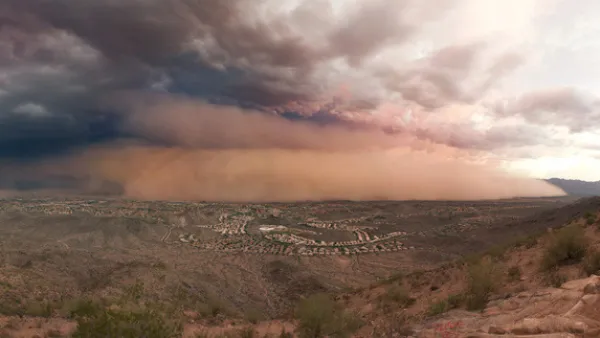Yesterday, the controversial plan to expand New York University's footprint in Greenwich Village over the next 20 years was approved by a City Council committee after last minute negotiations and reductions, reports Joseph Berger.
NYU's controversial 2031 expansion plan came up before the City Council's Land Use Committee on Tuesday, and came away with a 19 to 1 victory, "all but assuring that the city will give the university the go-ahead to proceed with its much-debated development," declares Berger. Under pressure from Margaret Chin, who represents Greenwich Village, NYU agreed to further reductions in building sizes, and promised to preserve more parkland and create more communal spaces, after late night and early morning negotiations. "The changes amount to a 26 percent reduction in space from N.Y.U.'s original plan," notes Berger.
In The New York Observer, Matt Chaban reports on the vocal, if late in the game, opposition to the plan by one key stakeholder group - NYU faculty. According to Chaban, "36 departments or divisions at the university have come out
against the plan," led by Mark Crispin
Miller, a media and culture professor. The group released an alternative plan on the same day as the council vote, arguing, "that NYU only needs a fraction of the space it is
proposing because little of what is being initially built-only 18
percent in the first of four towers-is for academic uses."
While the faculty plan came late in the five-year planning process, the Greenwich Village Society for Historic Preservation, led by executive director Andrew Berman, have raised consistent objections to the plan for the duration of the process.
"In a statement, Mr. Berman called the Land Use Committee's approval 'a
slap in the face to the thousands of area residents and the countless
N.Y.U. faculty and staff workers who called for the plan to be voted
down.'"
"We will take this battle to the full Council," he added, "and possibly beyond."
FULL STORY: N.Y.U. Expansion Plan Wins Key Vote of Council Panel

Analysis: Cybertruck Fatality Rate Far Exceeds That of Ford Pinto
The Tesla Cybertruck was recalled seven times last year.

National Parks Layoffs Will Cause Communities to Lose Billions
Thousands of essential park workers were laid off this week, just before the busy spring break season.

Retro-silient?: America’s First “Eco-burb,” The Woodlands Turns 50
A master-planned community north of Houston offers lessons on green infrastructure and resilient design, but falls short of its founder’s lofty affordability and walkability goals.

Test News Post 1
This is a summary

Analysis: Cybertruck Fatality Rate Far Exceeds That of Ford Pinto
The Tesla Cybertruck was recalled seven times last year.

Test News Headline 46
Test for the image on the front page.
Urban Design for Planners 1: Software Tools
This six-course series explores essential urban design concepts using open source software and equips planners with the tools they need to participate fully in the urban design process.
Planning for Universal Design
Learn the tools for implementing Universal Design in planning regulations.
EMC Planning Group, Inc.
Planetizen
Planetizen
Mpact (formerly Rail~Volution)
Great Falls Development Authority, Inc.
HUDs Office of Policy Development and Research
NYU Wagner Graduate School of Public Service



























